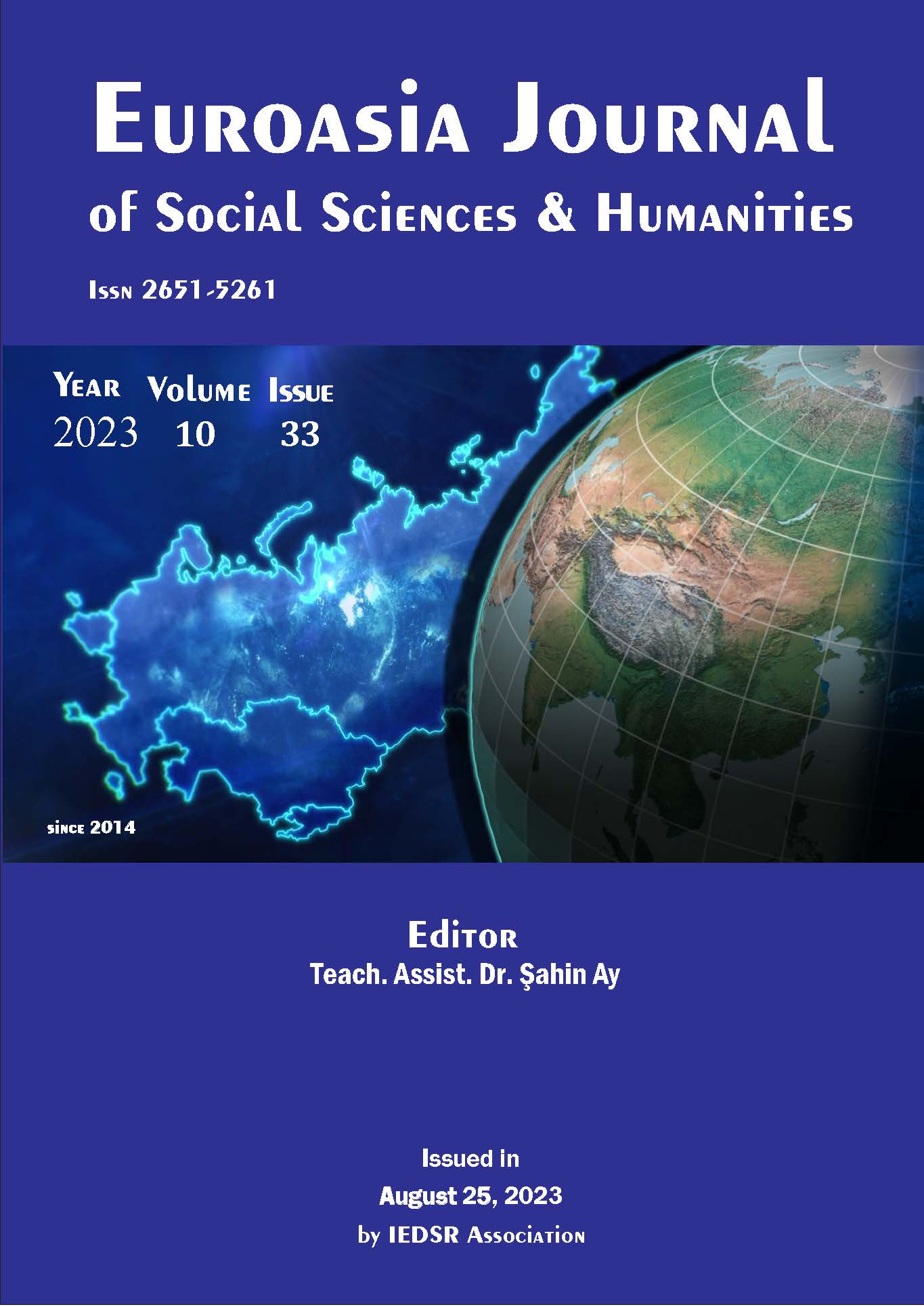Metaphoric Perceptions of Secondary School Students About Distance Education
DOI:
https://doi.org/10.5281/zenodo.8436317Keywords:
Distance Education, Metaphor, Secondary School StudentsAbstract
Various problems experienced by students in accessing distance education have created differences in perceptions towards distance education. In this research, it is aimed to reveal the perceptions of secondary school students regarding distance education through metaphors. In the research, the phenomenon pattern from qualitative research methods was used. Working group of the research 2020-2021 academic year 8. It constitutes a total of 76 students studying in the classroom. The research used a semi-structured interview form developed by the researcher as a data collection tool. In the interview form, information about the technological products that students use in access to gender, distance education and the types of institutions they study. In addition, "Remote education ..........benz er. Because...................The expression…" is used. Content analysis method from qualitative data analysis methods was used in the analysis of research data. As a result of the research, students studying in private schools provide access to distance education using multiple technological tools, tablets and computers compared to students in public school. It has also been concluded that the metaphors of distance education for students studying in private schools are more negative.
Downloads
References
Akpolat, T. (2021). Ortaokul öğrencilerinin uzaktan eğitime ilişkin metaforik algılarının incelenmesi. Ankara University Journal of Faculty of Educational Sciences (JFES), 54(2), 497-522.
Alptekin, G., & Türkmen, D. (2023). Ortaöğretim öğrencilerinin COVID-19 pandemi dönemindeki uzaktan eğitim faaliyetlerine ilişkin algı düzeyleri. Açıköğretim Uygulamaları ve Araştırmaları Dergisi, 9(1), 23-61.
Borgerding, L. A. (2017). High school biology evolution learning experiences in a rural context: A case of and for cultural border crossing. Cultural Studies of Science Education, 12(1), 53-79.
Bullough Jr, R. V. (1991). Exploring personal teaching metaphors in preservice teacher education. Journal of teacher education, 42(1), 43-51.
Büyüköztürk, Ş., Kılıç Çakmak, E., Akgün, Ö. E., Karadeniz, Ş. & Demirel, F. (2019). Bilimsel araştırma yöntemleri. Ankara: Pegem Akademi.
Cantürk, G., & Cantürk, A. (2021). İngilizce öğretmenlerinin covıd-19 küresel salgını sürecinde gerçekleştirdikleri uzaktan eğitim deneyimleriyle ilgili görüşlerinin metaforlar yoluyla belirlenmesi. International Journal of Current Approaches in Language, Education and Social Sciences, 3(1), 688-724.
Çivril, H., Aruğaslan, E., & Özkara, B. Ö. (2018). Uzaktan eğitim öğrencilerinin uzaktan eğitime yönelik algıları: Bir metafor analizi. Eğitim Teknolojisi Kuram ve Uygulama, 8(1), 39-59.
Çokyaman, M., & Menderes, Ü. (2021). Öğrenci ve öğretmenlerin Covid-19 salgını dönemindeki uzaktan eğitim algısı: Bir metafor analizi. OPUS International Journal of Society Researches, 18 (Yönetim ve Organizasyon Özel Sayısı), 1684-1715.
Deignan, A., Semino, E., & Paul, S. A. (2019). Metaphors of climate science in three genres: Research articles, educational texts, and secondary school student talk. Applied Linguistics, 40(2), 379-403.
Demirbilek, N. (2021). Üniversite öğrencilerinin uzaktan öğretime ilişkin metaforik algıları. e-Uluslararası Eğitim Araştırmaları Dergisi, 12(1), 1-15.
Doğan, S., & Koçak, E. (2020). EBA sistemi bağlamında uzaktan eğitim faaliyetleri üzerine bir inceleme. Ekonomi ve Sosyal Araştırmalar Dergisi, 7(14), 111-124.
Güngörmez, H. G. (2020). Covid-19 Pandemisi sürecinde uzaktan eğitim alan ortaokul öğrencilerinin uzaktan fen bilimleri dersi eğitimine ilişkin algılarının metaforlar yoluyla incelenmesi. EJERCongress 2020 Bildiri Özetleri Kitabı, 493-496.
Karataş, Z. (2015). Sosyal bilimlerde nitel araştırma yöntemleri. Manevi temelli sosyal hizmet araştırmaları dergisi, 1(1), 62-80.
Merriam, S. B. (2013). Nitel araştırma: Desen ve uygulama için bir rehber (3. Baskıdan Çeviri, Çeviri Editörü: S.Turan). Ankara: Nobel Yayın Dağıtım.
Miles, M. B. ve Huberman, A. M. (1994). Qualitative data analysis. London: Sage Publication.
Mullet, D. R., Kettler, T., & Sabatini, A. (2018). Gifted students’ conceptions of their high school STEM education. Journal for the Education of the Gifted, 41(1), 60-92.
Schulte, M. (2018). Adult learning degree and career pathways: Allusions to Maslow's hierarchy of needs. The Journal of Continuing Higher Education, 66(1), 62-64.
Smyth, J. (2020). When teachers theorize their practice: A reflexive approach to a distance education course. In critical reflections on distance education (pp. 197-233). Routledge.
Soto-Andrade, J. (2020). Metaphors in mathematics education. Encyclopedia of mathematics education, 619-625.
Yenilmez, K., Turğut, M., & Balbağ, M. Z. (2017). Öğretmen adaylarının uzaktan eğitime yönelik tutumlarının bazı değişkenler açısından incelenmesi. Erzincan Üniversitesi Eğitim Fakültesi Dergisi, 19(2), 91-107.
Yılmaz, A., Esentürk, O. K., Demir, G. T., & İlhan, E. L. (2017). Metaphoric Perception of Gifted Students about Physical Education Course and Physical Education Teachers. Journal of Education and Learning, 6(2), 220-234.
Yılmaz, G. K., & Güven, B. (2015). Öğretmen adaylarının uzaktan eğitime yönelik algılarının metaforlar yoluyla belirlenmesi. Türk Bilgisayar ve Matematik Eğitimi Dergisi, 6(2), 299-322.
Downloads
Published
How to Cite
Issue
Section
License
Copyright (c) 2023 EUROASIA JOURNAL OF SOCIAL SCIENCES & HUMANITIES

This work is licensed under a Creative Commons Attribution-NonCommercial 4.0 International License.

